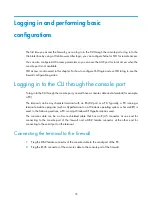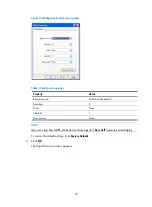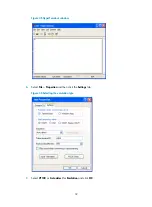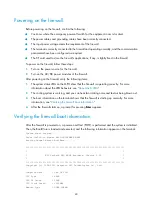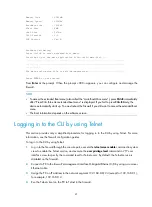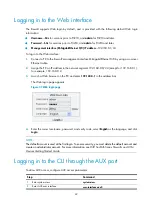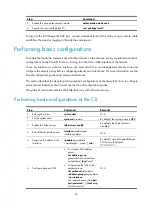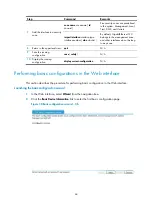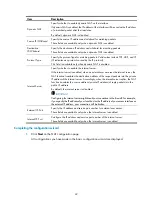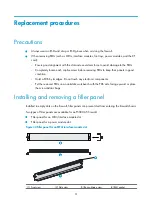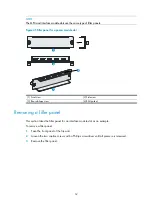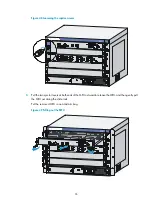
49
Item Description
Dynamic NAT
Specify whether to enable dynamic NAT on the interface.
If dynamic NAT is enabled, the IP address of the interface will be used as the IP address
of a matched packet after the translation.
By default, dynamic NAT is disabled.
Source IP/Wildcard
Specify the source IP address and wildcard for matching packets.
These fields are available only when dynamic NAT is enabled.
Destination
IP/Wildcard
Specify the destination IP address and wildcard for matching packets.
These fields are available only when dynamic NAT is enabled.
Protocol Type
Specify the protocol type for matching packets. Valid values include TCP, UDP, and IP
(IP indicates any protocol carried by the IP protocol).
This field is available only when dynamic NAT is enabled.
Internal Server
Specify whether to enable the internal server.
If the internal server is enabled, when an external user accesses the internal server, the
NAT function translates the destination address of the request packets into the private
IP address of the internal server. Accordingly, when the internal server replies, the NAT
function translates the source address (private IP address) of reply packets into the
public IP address.
By default, the internal server is disabled.
IMPORTANT:
Configuring the internal server might break your connection to the firewall. For example,
if you specify the IP address of your local host or the IP address of your access interface as
the external IP address, your connection will be broken.
External IP: Port
Specify the IP address and service port number for external user access.
These fields are available only when the internal server is enabled.
Internal IP: Port
Configure the IP address and service port number of the internal server.
These fields are available only when the internal server is enabled.
Completing the configuration wizard
1.
Click
Next
on the NAT configuration page.
All configurations you have made in the basic configuration wizard are displayed.

